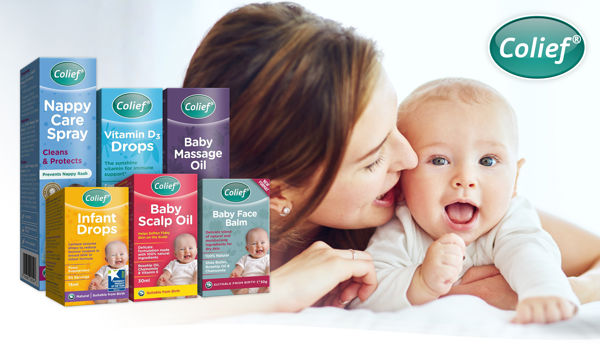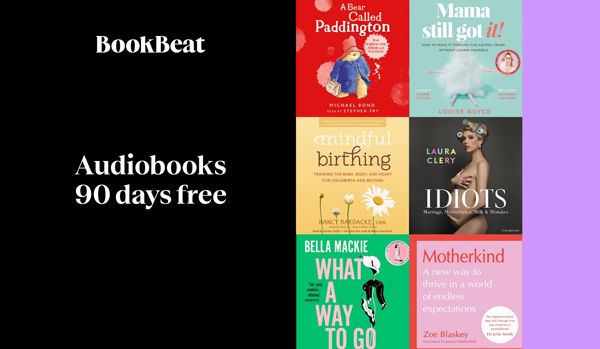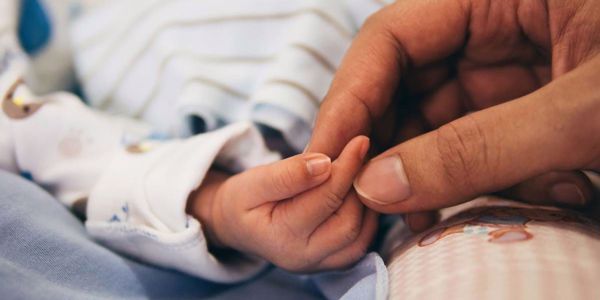There's an old wives' tale about how you lose a tooth for every baby you have. The Danes have a proverb about it, 'et barn, en tand' meaning 'a child, a tooth'.
But the biggest clue that growing a baby affects your teeth is the free NHS dental care from when you're pregnant until a year after giving birth.
I just thought they were being nice.
So, I was not prepared for the increased sensitivity, then sharp pains and then endless agony. All from when my baby was six weeks old. Don't wish death on your worst enemy - that's too good for them. Wish on them night feeds with a terrible toothache.
My dentist kept saying my teeth were just more sensitive at the moment. Which they were. More sensitive to food. More sensitive to breathing. More sensitive to existing. So, no work was done on them and then it was Christmas at my in-laws 125 miles away.
It was my first Christmas with my baby. But also, my first without being able to eat anything. I once said weakly, 'I might be able to manage some mashed up baked beans', and if that doesn't scream Christmas, I don't know what does.
I gazed longingly at the tin of Quality Street. While thinking about those Victorian ladies who had all their teeth taken out for a 21st birthday gift and replaced with wooden ones to save a lifetime of pain. Then considered getting it done for my 40th.
But it turns out I have a Guardian angel and this Guardian angel had given me a dentist for a mother-in-law. As soon as her surgery reopened after Christmas she rummaged around my mouth and found the problem. Something about a tooth disintegrating. I can't remember exactly as I was faint with hunger.) She then put some stuff on it (can't remember what) for a temporary fix and I felt happier than the heavily pregnant Mary when she finally arrived at that stable.
Back home I returned to my regular dentist telling him what I needed. But they couldn't work on my tooth until an infection had been treated with strong antibiotics. And I couldn't take the antibiotics as I was breastfeeding and they might affect my baby's teeth. If Joseph Heller were still alive he'd be rewriting Catch 22 about this exact scenario.
Eventually, we agreed on a half dose even though I feared my son's teeth were going to come out triangular or something. (They didn't.) Then I had root canal surgery, which was abandoned halfway through and finally the guilty tooth was wrenched out. (It was a back tooth so I didn't bother getting it replaced and interestingly the gap closed itself within a year.)
So, what does pregnancy do to your teeth and more importantly - can you avoid it?
Like most other pregnancy problems, it's all down to hormones which can affect the teeth and gums. Morning sickness can play a part too as the extra acid in your mouth may lead to gingivitis and cavities. Pregnancy cravings for sweet food will also not help.
There had been a theory that the growing baby somehow siphons off calcium from the mother's teeth for themselves but this has been disproved. (Although they do steal some calcium from the mother's bones if required, which is incredible.)
To avoid dental hell, do all the usual recommended stuff: brushing, flossing and limiting sugary drinks and food. If you have pregnancy-related sickness, rinse your mouth out with water afterwards. Delay any tooth brushing for an hour as the acids make your teeth softer. And definitely take advantage of your free dental check-ups in pregnancy and for the 12 months after the birth.
How do you get free dental NHS treatment (apart from finding yourself a dentist mother-in-law)?
You need a Maternity Exemption Certificate, sometimes called a MatEx. It also entitles you to free NHS prescriptions. Ask your doctor, nurse or midwife for form FW8. Once completed they will sign and submit it and you'll be sent a paper certificate. (It used to be a plastic card.) Your health professional may be able to apply for it digitally and have it emailed to you.
When you make your dental appointment, tell the receptionist that it is for free NHS treatment.
This saved me a lot of money. As that old wives' tale about gaining a baby and losing a tooth was true for me. I'm very glad I didn't have octuplets.







